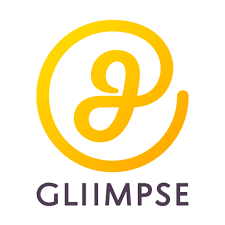 For those of us of a certain age, a "Kodak moment" connotes a special event that should be captured by a photo, presumably on Kodak film. For younger generations, the term probably doesn't mean anything, because they don't know what Kodak is and have never seen film. That's why, for some, "Kodak moment" has come to suggest a turning point when big companies and even entire industries can become obsolete. Health care could soon be at such a point. Anthony Jenkins, a former CEO of Barclay's, recently warned that banks could face a Kodak moment soon...
For those of us of a certain age, a "Kodak moment" connotes a special event that should be captured by a photo, presumably on Kodak film. For younger generations, the term probably doesn't mean anything, because they don't know what Kodak is and have never seen film. That's why, for some, "Kodak moment" has come to suggest a turning point when big companies and even entire industries can become obsolete. Health care could soon be at such a point. Anthony Jenkins, a former CEO of Barclay's, recently warned that banks could face a Kodak moment soon...
Apple
See the following -
Halamka Discusses Three Disruptive Care Coordination Innovations In Use at Beth Israel
 Would you buy an iPhone if the only apps that ran on it were written by Apple? Maybe, but the functionality would not be very diverse. The same can be said of EHRs. Athena, Cerner, Epic, Meditech, and self developed EHRs such as BIDMC’s webOMR are purpose-built transaction engines for capturing data. However, it is impossible for any single vendor to provide all the innovation required by the marketplace to support new models of care I’m a strong believer in the concept of third party modules that layer on top of traditional EHRs in the same way that apps run in the iPhone ecosystem...
Would you buy an iPhone if the only apps that ran on it were written by Apple? Maybe, but the functionality would not be very diverse. The same can be said of EHRs. Athena, Cerner, Epic, Meditech, and self developed EHRs such as BIDMC’s webOMR are purpose-built transaction engines for capturing data. However, it is impossible for any single vendor to provide all the innovation required by the marketplace to support new models of care I’m a strong believer in the concept of third party modules that layer on top of traditional EHRs in the same way that apps run in the iPhone ecosystem...
- Login to post comments
Has Open Source Gone Mainstream?
 Open source has officially made it. While open source advocates may have faced an uphill battle to convince their colleagues in the past, the technology has now become a legitimate component of the mainstream technological scene. That's according to GitHub's senior director of infrastructure engineering Sam Lambert, who told IT Pro that open source software is no longer the niche field it once was...
Open source has officially made it. While open source advocates may have faced an uphill battle to convince their colleagues in the past, the technology has now become a legitimate component of the mainstream technological scene. That's according to GitHub's senior director of infrastructure engineering Sam Lambert, who told IT Pro that open source software is no longer the niche field it once was...
- Login to post comments
Health Care's Kodak Moment
- Login to post comments
Health IT For Consumers Could Transform Health Care
Some of the great innovators in retailing in the past decade emerged as giants because they recognized that consumers prefer the convenience of electronic delivery. Read More »
- Login to post comments
Healthcare API Market Worth US$ 234 Million by 2024
 Market Research Engine has published a new report titled as “Healthcare API Market By Services (Remote Patient Monitoring, Electronic Health Record Access, Payment, Medical Device (Wearable), Appointments,); By Deployment Model (On-premise, Cloud-based); By End-Users (Healthcare Providers, Patients, Healthcare Payers, Vendors) - Global Industry Analysis and Forecast 2016 - 2024” The healthcare API market is expected to exceed more than US$ 234 million by 2024; Growing at a CAGR of more than 4% in the given forecast period....
Market Research Engine has published a new report titled as “Healthcare API Market By Services (Remote Patient Monitoring, Electronic Health Record Access, Payment, Medical Device (Wearable), Appointments,); By Deployment Model (On-premise, Cloud-based); By End-Users (Healthcare Providers, Patients, Healthcare Payers, Vendors) - Global Industry Analysis and Forecast 2016 - 2024” The healthcare API market is expected to exceed more than US$ 234 million by 2024; Growing at a CAGR of more than 4% in the given forecast period....
- Login to post comments
Healthcare Innovation: Think Bigger, Fail Often.
 Alan Kay recently outlined some of the principles that he thought made Xerox's PARC so successful (if you don't know who Alan Kay is or why PARC was so special, you should try to find out). One was: "'It's baseball,' not 'golf'...Not getting a hit is not failure but the overhead for getting hits." That doesn't quite square with my impression of golf, but I take the point. It's about the price of success. As psychologist Dean Simonton pointed out in Origins of Genius: "The more successes there are, the more failures there are as well." "Quality," he wrote, "is a probabilistic function of quantity." We talk a lot about innovation these days, especially "disruptive innovation." Why not? It sounds cool, it allows people to think they're on the cutting edge, and it often excites investors. But perhaps we've lost sight of what it is supposed to actually be...
Alan Kay recently outlined some of the principles that he thought made Xerox's PARC so successful (if you don't know who Alan Kay is or why PARC was so special, you should try to find out). One was: "'It's baseball,' not 'golf'...Not getting a hit is not failure but the overhead for getting hits." That doesn't quite square with my impression of golf, but I take the point. It's about the price of success. As psychologist Dean Simonton pointed out in Origins of Genius: "The more successes there are, the more failures there are as well." "Quality," he wrote, "is a probabilistic function of quantity." We talk a lot about innovation these days, especially "disruptive innovation." Why not? It sounds cool, it allows people to think they're on the cutting edge, and it often excites investors. But perhaps we've lost sight of what it is supposed to actually be...
- Login to post comments
Healthcare Must Open Its Eyes To Open Source
Recently I attended a product demonstration at my local Apple store where we were presented with an iPad-based EHR solution. There were lots of oohs and aahs as the demonstrator did a fictional patient visit, recorded the symptoms and automatically generated a bill [...]. Read More »
- Login to post comments
Here's Everything Microsoft Is Letting the Government See
For the first time, The Guardian is detailing how a tech company works with the National Security Agency to share user information under the NSA's PRISM program. Unfortunately, that tech company happens to be Microsoft, the one that makes the operating system used on 92 percent of computers in the world. Read More »
- Login to post comments
Here's Why Mozilla Is Building A $US25 Smartphone
Last week, Mozilla tapped Andreas Gal as its new chief technology officer...He’s intensely focused on Firefox OS, a mobile operating system with big ambitions: winning the battle for the next two billion smartphone users...
- Login to post comments
Hot Programming Trends from 2016
 Technology is constantly moving forward—well, maybe not always forward, but always moving. Even for someone who keeps an eye on the trends and their effect on programmers, discerning exactly where things are headed can be a challenge. My clearest glimpse into open source programming trends always comes in the fall when I work with my fellow chairs, Kelsey Hightower and Scott Hanselman, and our fantastic programming committee to sculpt the coming year's OSCON (O'Reilly Open Source Convention). The proposals that we get and the number focused on specific topics turn out to be good indicators of hot trends in the open source world. What follows is an overview of the top programming trends we saw in 2016...
Technology is constantly moving forward—well, maybe not always forward, but always moving. Even for someone who keeps an eye on the trends and their effect on programmers, discerning exactly where things are headed can be a challenge. My clearest glimpse into open source programming trends always comes in the fall when I work with my fellow chairs, Kelsey Hightower and Scott Hanselman, and our fantastic programming committee to sculpt the coming year's OSCON (O'Reilly Open Source Convention). The proposals that we get and the number focused on specific topics turn out to be good indicators of hot trends in the open source world. What follows is an overview of the top programming trends we saw in 2016...
- Login to post comments
How Andy Rubin Kept Android Open-Source at Its Heart
A year ago at Google HQ in Mountain View, Andy Rubin built a mechanical robot arm. "I put a hammer in its hand and connected it to a big Chinese gong. Whenever Android sells 10,000 units, the gong sounds and you can hear it through the whole building. When I designed it, it sounded three times a day: now it does it every three minutes. I really have to reprogram it..." Read More »
- Login to post comments
How Apple Can Fix The Usability Problem In Healthcare
I want clinicians to buy more Apple products. I want Macbooks to replace your PCs. Other than promoting Apple and angering PC-lovers, why would I say this? Read More »
- Login to post comments
How Apple’s Purchase of Startup Reveals Health Data Strategy
 Apple’s recent acquisition of health startup Gliimpse is the latest in a long series of strategic moves by the Cupertino, Calif.-based company to capture mindshare and market share in a healthcare industry increasingly reliant on data. News of the tech giant’s purchase of Gliimpse—a personal health record aggregator—did not come from Apple, which does not comment on its acquisitions or the strategy behind them. Reports of the acquisition first surfaced in Fast Company, a business magazine that covers the technology industry...
Apple’s recent acquisition of health startup Gliimpse is the latest in a long series of strategic moves by the Cupertino, Calif.-based company to capture mindshare and market share in a healthcare industry increasingly reliant on data. News of the tech giant’s purchase of Gliimpse—a personal health record aggregator—did not come from Apple, which does not comment on its acquisitions or the strategy behind them. Reports of the acquisition first surfaced in Fast Company, a business magazine that covers the technology industry...
- Login to post comments
How Big Business Buys The Right To Dodge US Taxes
...[F]irms like Apple, Google, or General Electric find ways avoid taxes on billions of dollars of global income. It may be bad for US taxpayers but, hey, blame lawmakers for doing such a crappy job; the companies are just following the rules that have been created for them...
- Login to post comments
How Bot That!
 About a year and a half ago I wrote I Hate Apps, expressing my concerns that apps had outlived their usefulness due to how they are cluttering up our devices, and found I wasn't alone in this attitude. Now Facebook is doing something about it, with their vision that they can use "bots" within their Messenger app to eliminate the need for many standalone apps. Indeed, as David Marcus, the head of messaging at Facebook, told Wired: "Everyone wanted websites when the web was launched. And then everyone wanted apps. This is the start of a new era"...
About a year and a half ago I wrote I Hate Apps, expressing my concerns that apps had outlived their usefulness due to how they are cluttering up our devices, and found I wasn't alone in this attitude. Now Facebook is doing something about it, with their vision that they can use "bots" within their Messenger app to eliminate the need for many standalone apps. Indeed, as David Marcus, the head of messaging at Facebook, told Wired: "Everyone wanted websites when the web was launched. And then everyone wanted apps. This is the start of a new era"...
- Login to post comments